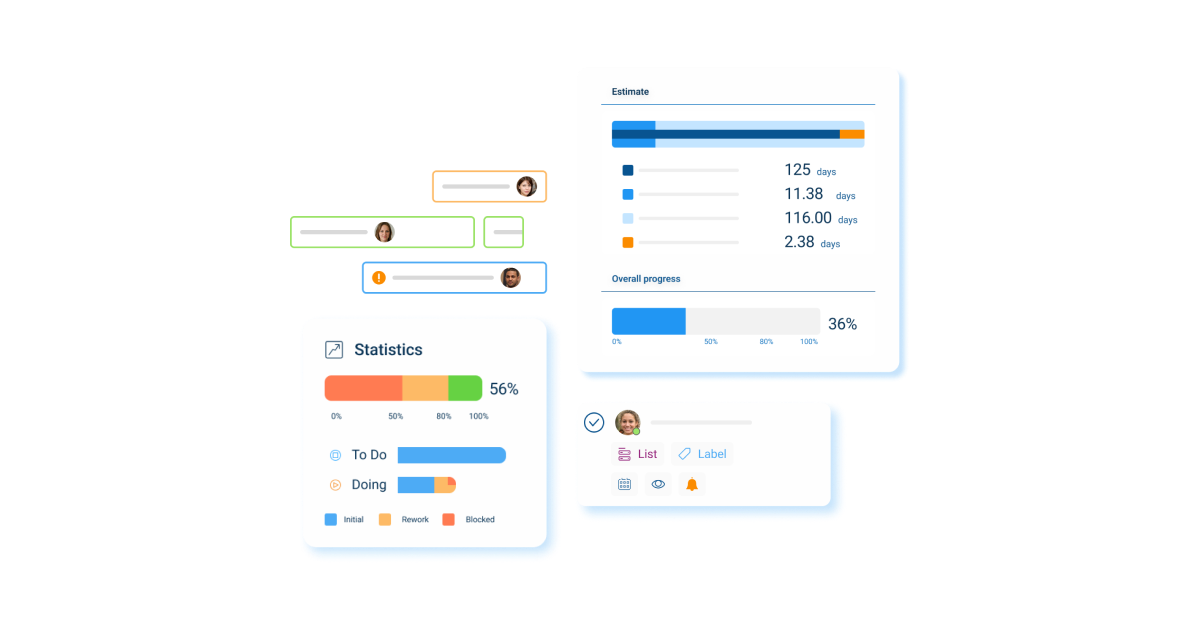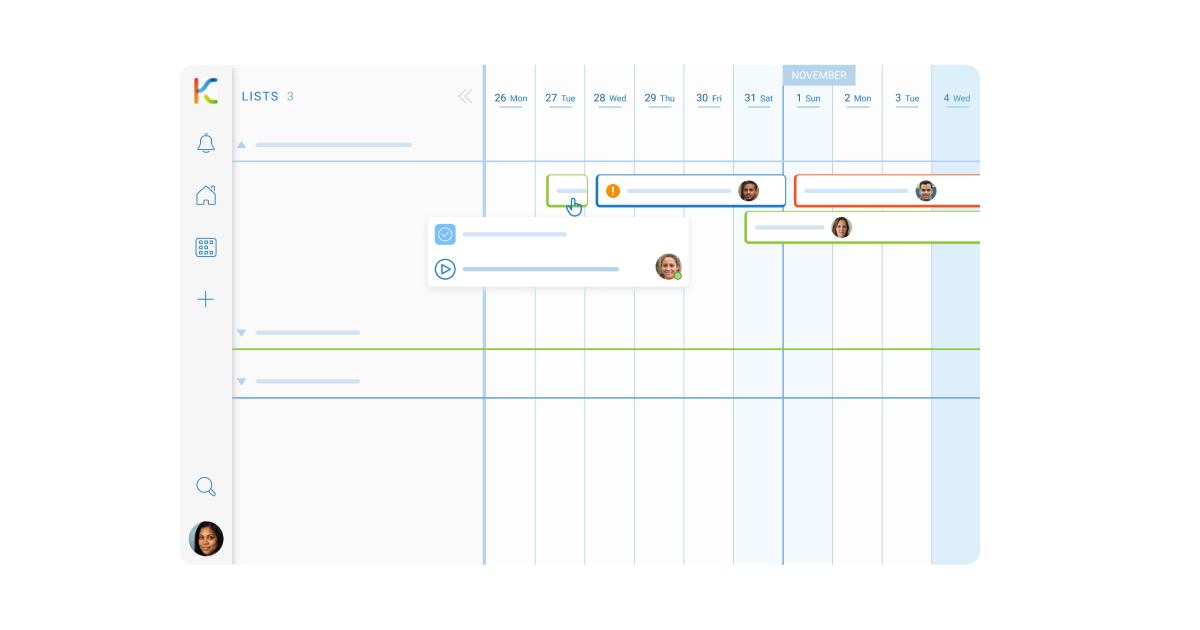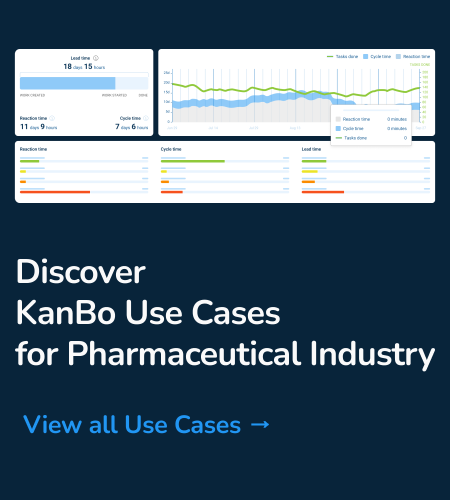Table of Contents
KanBo – The Pharma-Focused Work Coordination Maestro
Experience ultimate task alignment, communication and collaboration
Trusted globally, KanBo, bridges the gap between management and engineering in complex pharmaceutical organizations. Seamless coordination, advanced project planning, and outstanding leadership are made possible through our versatile software. Stride toward your mission-critical goals with superior collaboration and communication.
KanBo Principal Scientist, Internal Medicine - Renal Diseases Enhancing Scientific Collaboration
What do you need to know about this challenge?
In the realm of internal medicine research, specifically within renal diseases, the Principal Scientist must overcome the challenge of enhancing scientific collaboration. This involves bridging the gap between researchers in multiple scientific communities and developing a cohesive research environment that promotes shared learning and collective progress.
What can you do with KanBo to solve this challenge?
KanBo offers an array of features that are adept at facilitating effective collaboration within scientific research projects:
- Consolidate Research Efforts: Use Grouping to organize research cards by specific themes or stages, making it easier for collaborators to locate and contribute to ongoing studies.

- Manage Collaborations Efficiently: Employ the space concept to create dedicated research spaces, allowing for clear separation of projects and more focused collaboration within specific areas of renal diseases study.

- Enhance Communication Clarity: Rely on the user activity stream to keep track of individual contributions and interactions, fostering transparency and accountability in collaborative efforts.

- Visualize Progression: Utilize the Timeline view to monitor and manage the progression of research activities and deadlines, ensuring alignment among collaborators and timely completion of milestones.

- Keep Research On Track: Set up reminders for upcoming experiments, meetings, or deadlines, serving as personal alerts to maintain momentum and stay on schedule.

- Effortless Navigation: Use KanBo Search to quickly locate research data, past experiments, and collaborative inputs, enhancing efficiency in navigating through a wealth of scientific information.

What can you expect after solving this challenge?
After incorporating KanBo as a solution for enhancing scientific collaboration in renal disease research, long-term benefits can be substantial. The streamlining of project management will likely lead to a boost in research productivity and a decrease in redundant efforts, resulting in a more innovative and synergistic scientific environment. Continuous updates and advancements in KanBo's features will further aid in anticipating project needs, tracking progress with precision, and enhancing the connectivity between researchers. The adaptive nature of KanBo ensures it will remain a versatile and powerful collaborator for any Principal Scientist aspiring to forge new paths in the field of renal diseases.

Table of Contents
KanBo – The Pharma-Focused Work Coordination Maestro
Experience ultimate task alignment, communication and collaboration
Trusted globally, KanBo, bridges the gap between management and engineering in complex pharmaceutical organizations. Seamless coordination, advanced project planning, and outstanding leadership are made possible through our versatile software. Stride toward your mission-critical goals with superior collaboration and communication.
KanBo Principal Scientist, Internal Medicine - Renal Diseases Enhancing Scientific Collaboration
What do you need to know about this challenge?
In the realm of internal medicine research, specifically within renal diseases, the Principal Scientist must overcome the challenge of enhancing scientific collaboration. This involves bridging the gap between researchers in multiple scientific communities and developing a cohesive research environment that promotes shared learning and collective progress.
What can you do with KanBo to solve this challenge?
KanBo offers an array of features that are adept at facilitating effective collaboration within scientific research projects:
- Consolidate Research Efforts: Use Grouping to organize research cards by specific themes or stages, making it easier for collaborators to locate and contribute to ongoing studies.

- Manage Collaborations Efficiently: Employ the space concept to create dedicated research spaces, allowing for clear separation of projects and more focused collaboration within specific areas of renal diseases study.

- Enhance Communication Clarity: Rely on the user activity stream to keep track of individual contributions and interactions, fostering transparency and accountability in collaborative efforts.

- Visualize Progression: Utilize the Timeline view to monitor and manage the progression of research activities and deadlines, ensuring alignment among collaborators and timely completion of milestones.

- Keep Research On Track: Set up reminders for upcoming experiments, meetings, or deadlines, serving as personal alerts to maintain momentum and stay on schedule.

- Effortless Navigation: Use KanBo Search to quickly locate research data, past experiments, and collaborative inputs, enhancing efficiency in navigating through a wealth of scientific information.

What can you expect after solving this challenge?
After incorporating KanBo as a solution for enhancing scientific collaboration in renal disease research, long-term benefits can be substantial. The streamlining of project management will likely lead to a boost in research productivity and a decrease in redundant efforts, resulting in a more innovative and synergistic scientific environment. Continuous updates and advancements in KanBo's features will further aid in anticipating project needs, tracking progress with precision, and enhancing the connectivity between researchers. The adaptive nature of KanBo ensures it will remain a versatile and powerful collaborator for any Principal Scientist aspiring to forge new paths in the field of renal diseases.

